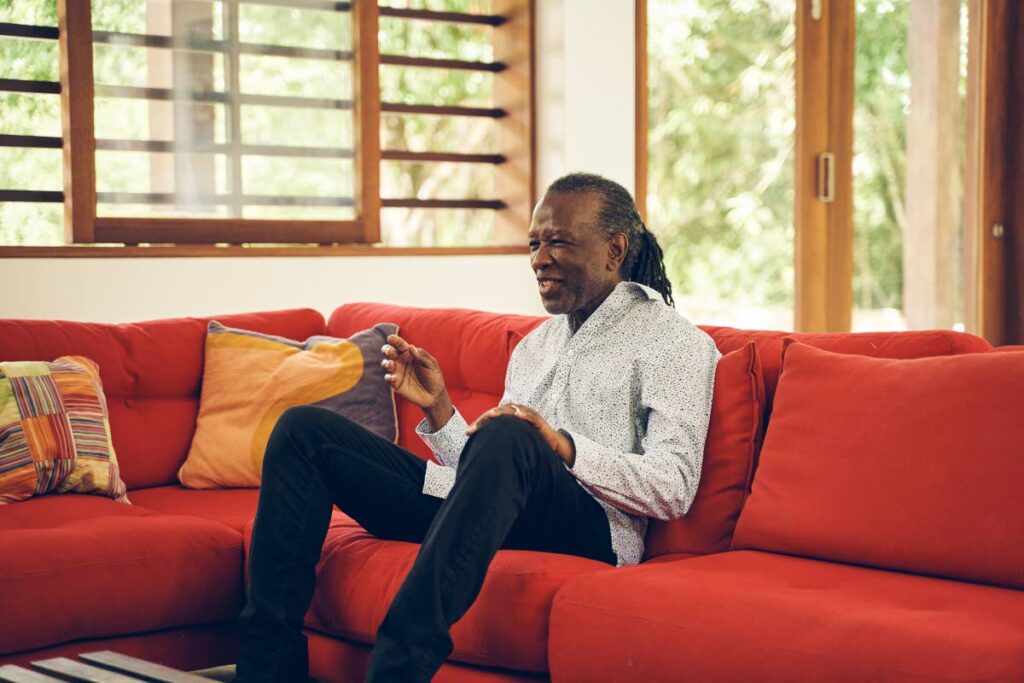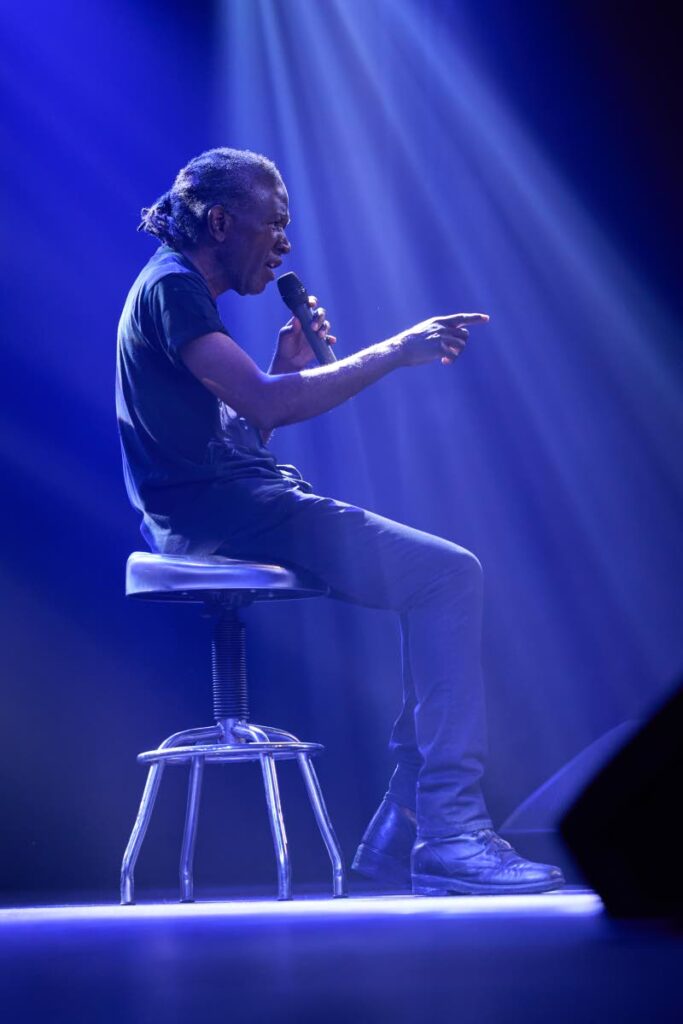Lovelace's film on jewels in King David’s crown

RAY FUNK
King David is a magical new 25-minute documentary on David Rudder by filmmaker Walt Lovelace that will be featured at the upcoming TT Film Festival on September 24 and 25.
The film focuses on the five songs that Rudder thinks are the ones that have had the greatest impact on his career. With interviews, recent and historic performance clips and background material, these songs, stored in the heart and soul of calypso and soca lovers, gain a new richness and depth.
Lovelace has worked in many aspects of the film industry in TT and the Caribbean for over 30 years. He began with the pioneering Banyan Productions, moving from logging tapes to audio and then camera. Since then, he has worked in many aspects of the industry, both on commercial assignments and his own productions. He’s directed a number of classic music videos for Rudder, 3canal, Ataklan and other musicians.
The 2004 feature film of his father Earl Lovelace’s short story Joebell and America was a family affair, with Walt director of photography, his brother Che the art director, and his sister Asha the director. Recently he has focused on Carnival traditions and created stunning one-minute shorts on traditional characters.
The concept of this film came about because Lovelace wanted not to do a typical life-story piece, but to hone in on the songwriting process and inspiration, having his subject pick out five key songs and discuss them in detail. The National Gas Company came on as executive producer, and Lovelace is grateful to communications managers Nicola Ghouralal and Lisa Burkett for their help.
The key interviews took place when Rudder came to Trinidad in February to do a show at the new Sound Forge facility in St James. Then Lovelace gathered historic footage from the Banyan archives and the National Archives to recover key articles and ads highlighting Rudder’s performance history.

The film focuses first on The Hammer and Bahia Girl, the two calypsoes that overwhelmed Rudder’s competitors on Dimanche Gras night in 1986 and made him Calypso Monarch. That night Sparrow proclaimed him King David. Almost any Trinidadian has heard these two songs hundreds of times. But this film offers a chance to go into the evolution of both, to learn how The Hammer started with a catchy melody composed by Pelham Goddard that Rudder transformed into a tribute to Rudolph Charles, the recently deceased leader of Desperadoes; and while Bahia Girl seems so much a Rudder song, he originally wrote it for Crazy (Edwin Ayoung) to sing.
There is footage of his winning performances at Dimanche Gras in 1986 and discussion of the controversy at the time, when some questioned whether these compositions were calypsoes. For Bahia Girl, it is fascinating to hear Rudder discuss how his concept evolved from a song for Crazy to one for himself and imagining an encounter with a woman, but also a spirit – indeed, a link to the Yoruba roots of both Trinidad and Brazil. It’s little remembered, but the Brazilian embassy at the time invited Rudder to go to Brazil, a trip that Banyan filmed and there is a mesmerising clip in the film of him performing with a percussion group that you wish just went on and on. Lovelace was on the trip to Brazil, recording sound for Banyan.
The next two songs offer a look at the struggle of traditional mas to survive and the people suffering from mental illness on the streets of Port of Spain. De Longtime Band is a tribute to the traditional masmakers that Rudder grew up seeing on J’Ouvert morning, especially a dragon, and how a small ole-time band managed to slip through a big mas band to command the Savannah stage.
Lovelace shot the precious footage on Super 8 many years ago of sailors, robbers, devils and more. Of The Madman’s Rant, from his 1996 album Tales From A Strange Land, Rudder says, “I have a strange connection with mad people: mad people like to talk to me. They tell me all kinds of crazy things – but sometimes they make sense.”
When mental illness affects so many people, who are often homeless, and there is not enough treatment, a connection to them and respect for their humanity are needed – especially at a time when one can question how many world leaders are offering madmen’s rants.
The last song, Song for a Lonely Soul, from his 1989 album The Sound & The Glory, is about emigrants in the cold “who can’t come home and want to come, that song is for them”; soca music, this song, can be what brings the traveller back home, back to their roots and love of their homeland, “back to my island.”
It is the resonance of these key songs that sweeps the viewer away. Rudder sums up their importance: “These songs are actually my autobiography…part and parcel of what my story is.”
There will be two showings of King David, on September 24 at 8 pm at MovieTowne, Port of Spain, and on September 25 at 6.30 pm at NALIS, Port of Spain. Both shows will feature a question-and-answer session with producer Janine Mendes-Franco.

Comments
"Lovelace’s film on jewels in King David’s crown"